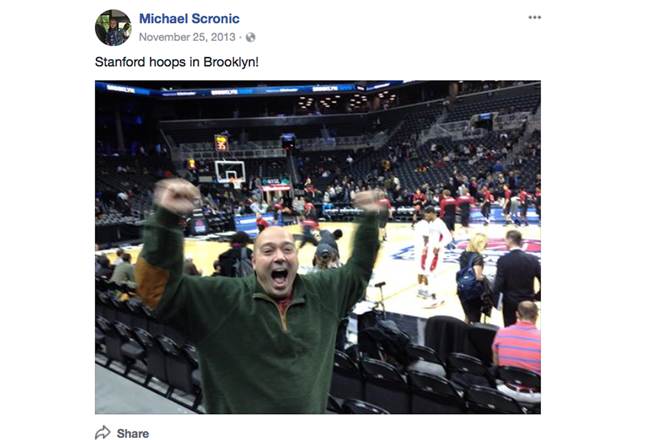Phony hedge fund manager Michael Scronic pleaded guilty to securities fraud in federal court yesterday.
Scronic, who ran the Scronic Macro Fund from his home in Pound Ridge from 2010 to 2017, admitted that he defrauded 45 investors of more than $22 million.

He was not registered as an investment adviser, the Securities and Exchange Commission states in a parallel lawsuit filed after the criminal complaint, and investors were putting money in a “fictitious hedge fund.”
He persuaded friends and acquaintances to invest as little as $23,000 and as much as $2.4 million. He charged a 1 percent fee for assets under management and 20 percent of profits.
But the profits were a mirage. He told investors that the fund had positive returns in all but one of 22 quarters when in fact it had lost money in all but one quarter.
Scronic put the money in a personal brokerage account, according to court records, and invested primarily in risky options contracts.
Nine months ago he told investors that the fund had $21.7 million in assets, U.S. Attorney Geoffrey S. Berman said in a news release, when his brokerage and bank accounts had just $102,376.
When investors wanted to cash out, he had paid them with money from new investors. But by last summer, he was unable to make payments and he was stalling and ignoring redemption requests.
Most of the money had disappeared in bad trades, the government said, and lot of it supported a lavish lifestyle.
He spent more than $500,000 a year on personal expenses, including $12,275 a month in rent for a 6,817-square-foot, 4-bedroom house on 10 acres in Pound Ridge and mortgage payments on a vacation home in Stratton Springs, Vermont.
His credit card charges averaged $15,000 a month. He paid for multiple beach and country club memberships. One day last June, after persuading an investor to put in another $100,000, he spent $11,000 at Cartier.
Scronic, 46, who now lives in Manhattan, also consented on Thursday to a $22.8 million judgment and agreed to forfeit the Vermont condominium and a property on DePietro Lane in Pawling, Duchess County.
The securities fraud conviction carries a maximum sentence of 20 years in prison. Sentencing is scheduled for July 9 before U.S. District Judge Cathy Seibel.
When Scronic was arrested in October, his wife, Ashley, co-signed a $500,000 personal recognizance bond. She filed for divorce later that month.
In December, she asked to be let out of her bond obligation in a letter to U.S. Magistrate Judge Lisa M. Smith.
She understood that her request could have an adverse impact on her husband”™s bail conditions, she said, but she wanted to remove herself from the proceedings as soon as possible.
“I am no longer willing to take the risk that he might violate the terms on his bond and that I might be punished or otherwise held responsible in some way for his actions.”





















Comments 1